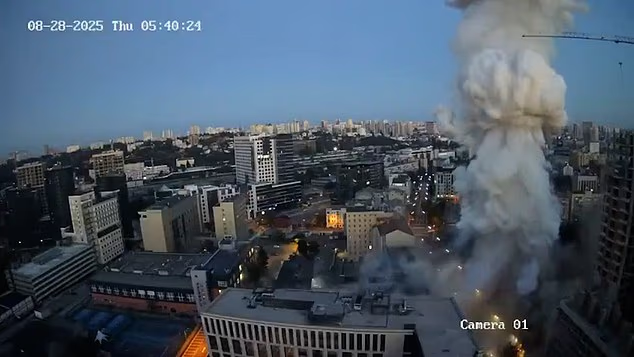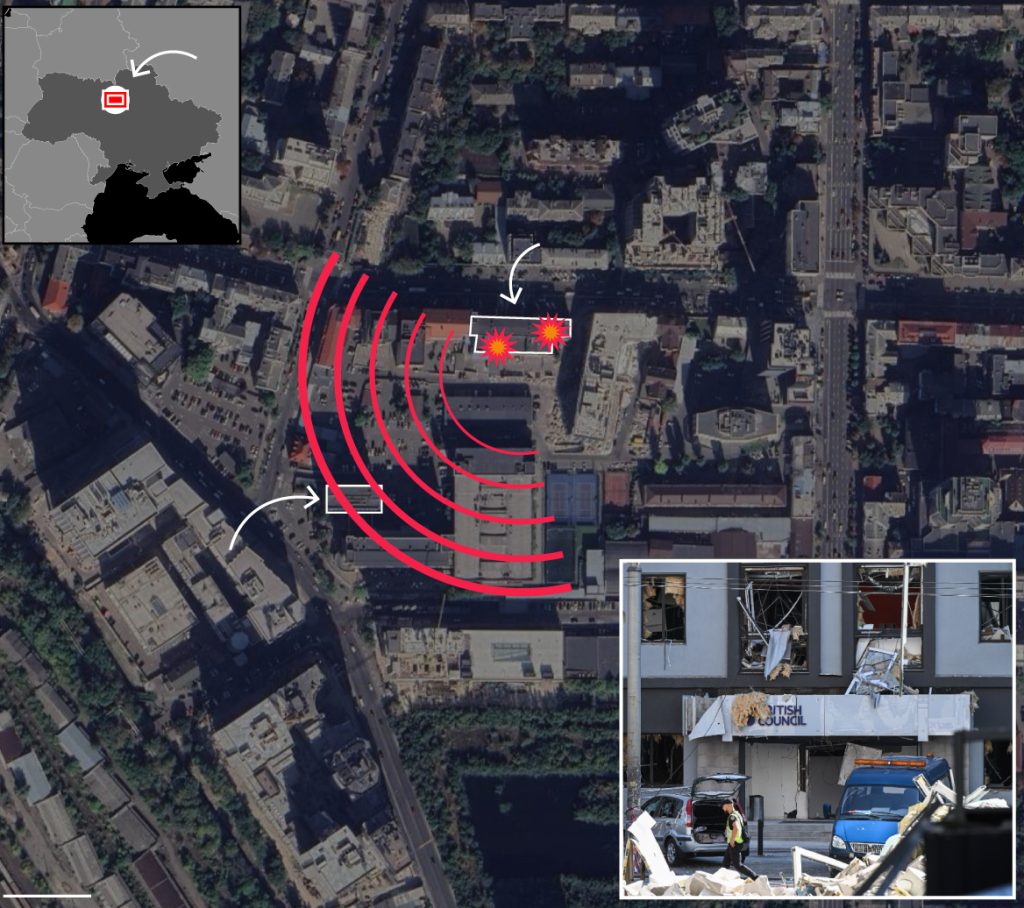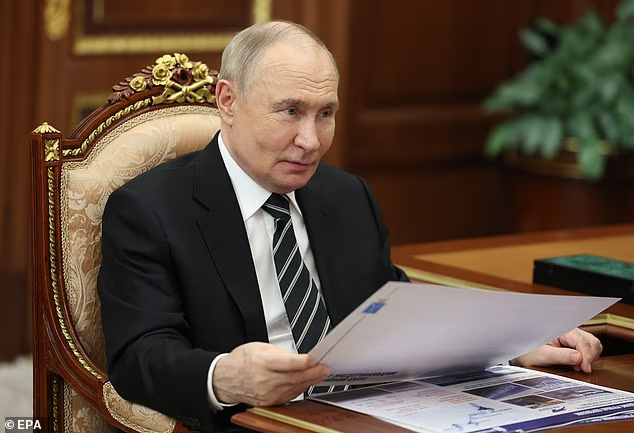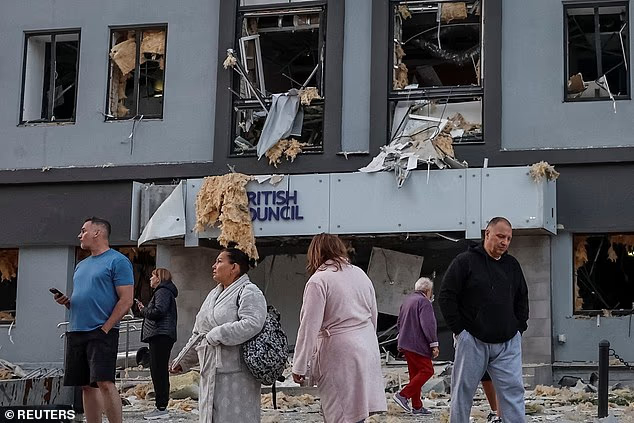Russia came within hours of striking British nationals after launching overnight missile and drone attacks on Kyiv that killed at least 18 people and devastated parts of the city.
Among the targets were the British Council’s education centre and the European Union’s diplomatic headquarters. Both buildings were hit in a rare “double-tap” strike, with the first missile exploding around 5:40 a.m. and a second following within seconds. The British Council site, normally staffed by UK-recruited teachers, would have been occupied just hours later.

Although no EU staff were killed, a security guard at the British Council site was injured. EU officials, including Commission president Ursula von der Leyen, denounced the strikes as “deliberate” attacks against European institutions. Britain’s prime minister, Keir Starmer, condemned the bombardment as “senseless bloodshed” and accused Vladimir Putin of sabotaging hopes for peace.
A Long-Running Kremlin Campaign Against the British Council
The attack comes against the backdrop of Moscow’s longstanding hostility toward the British Council. Since 2007, Russian authorities have repeatedly harassed its staff, accusing the organisation of espionage under the guise of cultural diplomacy. The Kremlin eventually forced its closure in Russia in 2018, and earlier this year it was officially labelled an “undesirable organisation,” criminalising cooperation by Russian academics or citizens.
Former Russian president Dmitry Medvedev once described the Council as Britain’s “secret weapon,” claiming it engaged in intelligence work—a narrative still promoted by the Kremlin.

Escalation in Kyiv
Ukraine reported that Russia launched 629 missiles and drones nationwide in one of the most intense waves of the war, employing hypersonic weapons and Iranian-made Shahed drones. Apartment blocks across Kyiv were ripped apart, leaving craters the size of multi-storey buildings and families trapped under rubble. Among the dead was a 14-year-old girl.
President Volodymyr Zelensky denounced the attacks as “horrific and deliberate killings of civilians,” urging tougher sanctions and stronger military support from Western allies. He warned that Russia “still does not fear consequences” and accused Moscow of deliberately rejecting diplomacy.
Images from the capital showed collapsed residential blocks, burning shopping centres, and residents sheltering underground with pets and children as red tracer fire streaked across the night sky.
Russia’s Contradictory Position
Despite the scale of the assault, Kremlin spokesman Dmitry Peskov insisted Moscow remained “open to negotiations” but defended the strikes as part of its military objectives. Kyiv dismissed the claim, accusing Russia of using diplomacy as cover while pursuing total war.
The Foreign Office in London summoned Russia’s ambassador, condemning the attacks as “outrageous” and warning that they would only “harden UK and Western resolve to support Ukraine.” Meanwhile, the EU also summoned Moscow’s envoy in Brussels, stressing that diplomatic missions must never be targeted.

Outlook
The strikes came just a day after the Kremlin dismissed the possibility of a quick summit between Putin and Zelensky. Moscow continues to demand Ukrainian territorial concessions and reduced Western backing as preconditions for peace—terms Kyiv rejects outright.
With Russia intensifying bombardments while simultaneously professing interest in diplomacy, the conflict shows no signs of de-escalation. Zelensky is now pressing allies—including the United States, China, and Hungary—to take a firmer stance, while UK and EU officials frame the attacks not only as war crimes but as a direct challenge to Europe’s security and sovereignty.



